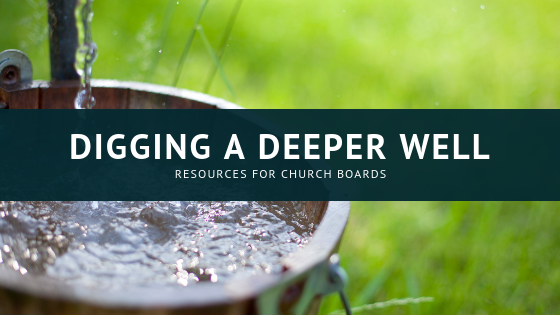During the first full year of the Civil War (1862), Emily Dickinson wrote:
At least—to pray—is left—is left—
Oh Jesus—in the Air—
I know not which thy chamber is—
I’m knocking—everywhere—
Thou settest Earthquake in the South—
And Maelstrom, in the Sea—
Say, Jesus Christ of Nazareth—
Hast thou no Arm for Me?
- What is the tone of this poem?
- What is the poet seeking?
- Where is she seeking?
- What does she find?
- What do the people who come into our places of worship seek in their prayers at this time? How do we answer?
Church boards function best when they see themselves less as a “Decision Making Body” and more as a group of seeking, vulnerable followers of Jesus who faithfully try to do God’s will as they have light to see that will. Can you imagine a church board meeting that reflects the depth and vulnerability of Dickinson’s poem? The Bible calls us to this on nearly every page, as in Psalm 130:
Out of the depths I cry to you, O Lord.
2 Lord, hear my voice!
Let your ears be attentive
to the voice of my supplications!
3 If you, O Lord, should mark iniquities,
Lord, who could stand?
4 But there is forgiveness with you,
so that you may be revered.
5 I wait for the Lord, my soul waits,
and in his word I hope;
6 my soul waits for the Lord
more than those who watch for the morning,
more than those who watch for the morning.
7 O Israel, hope in the Lord!
For with the Lord there is steadfast love,
and with him is great power to redeem.
8 It is he who will redeem Israel
from all its iniquities.
- What is the tone of this Psalm?
- What relation do you see between Psalm 130 and the work before you this month?
- Have you had an experience of waiting for God “more than those who watch for the morning”? What did that feel like? What came of your waiting?
- What prayers need to be offered “out of the depths” for your congregation, for your church board, for those in your group?








No Comments